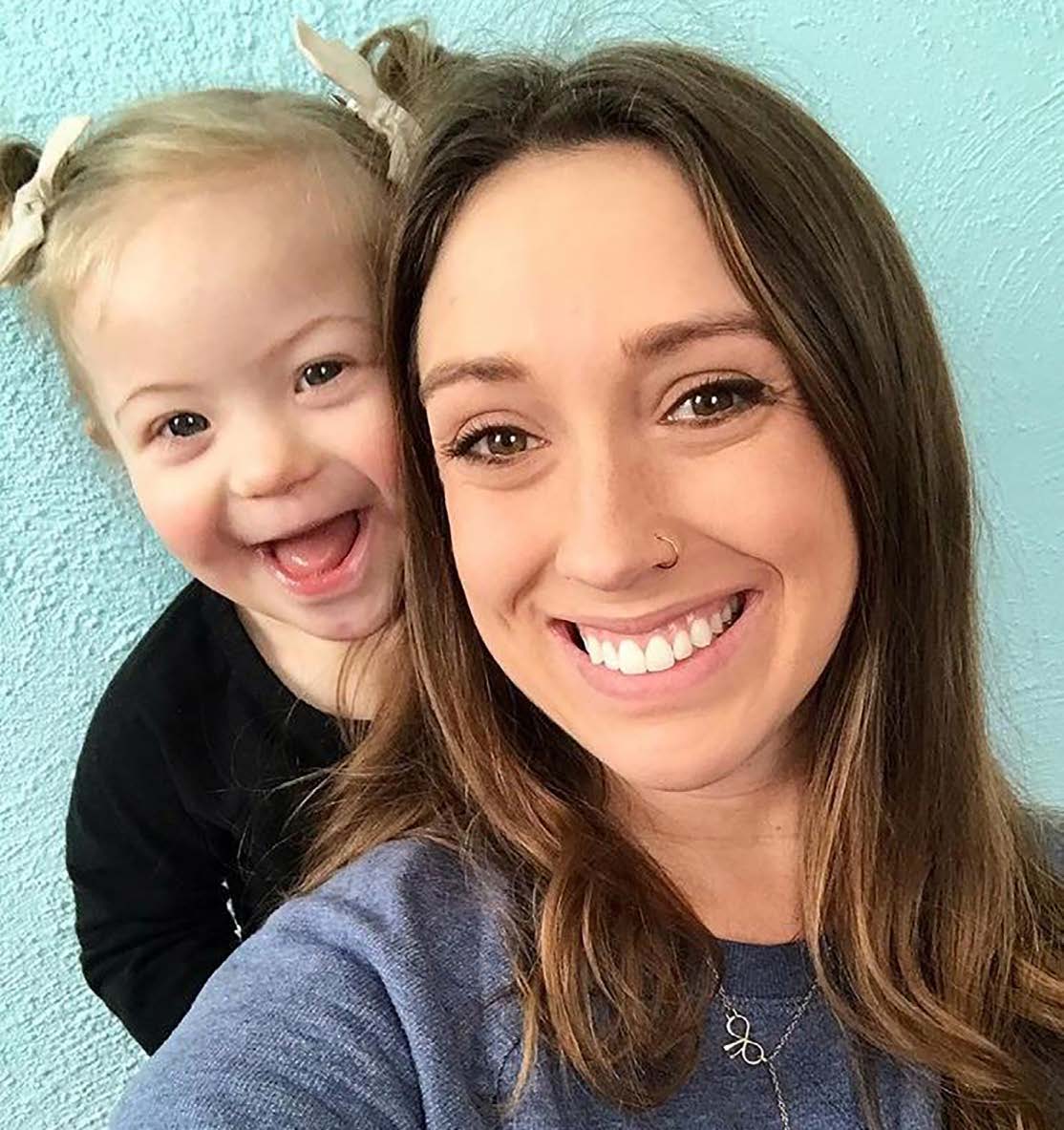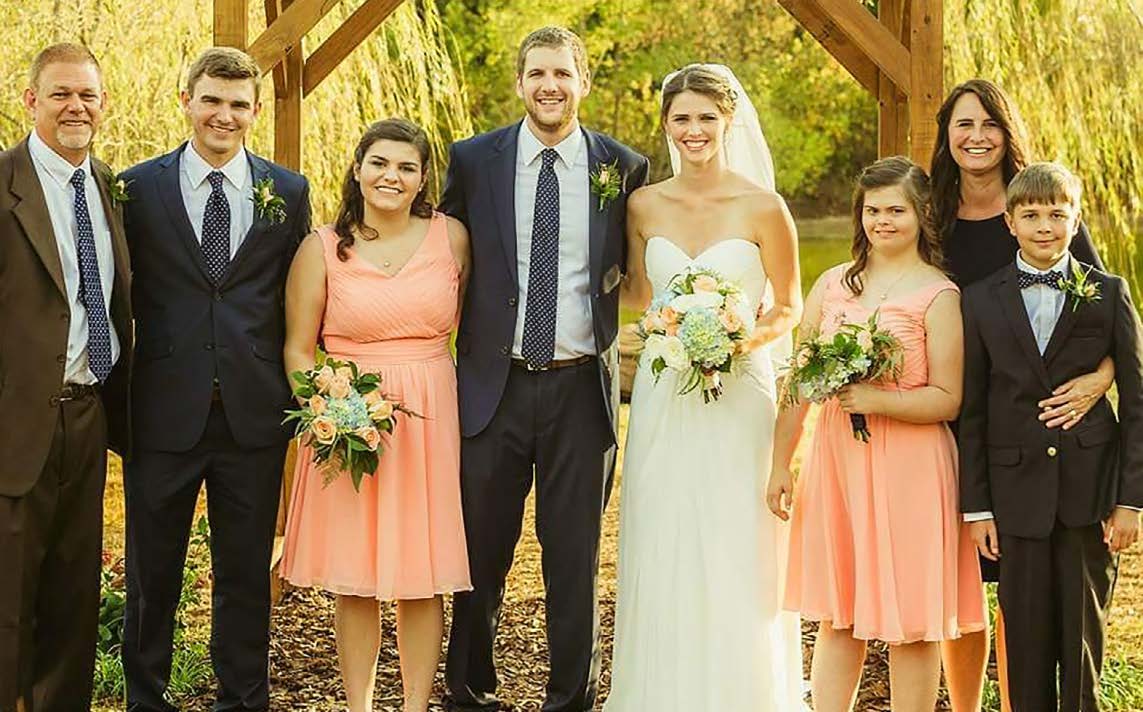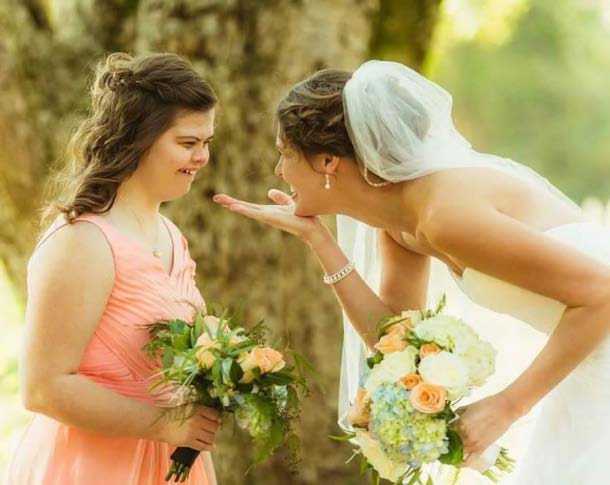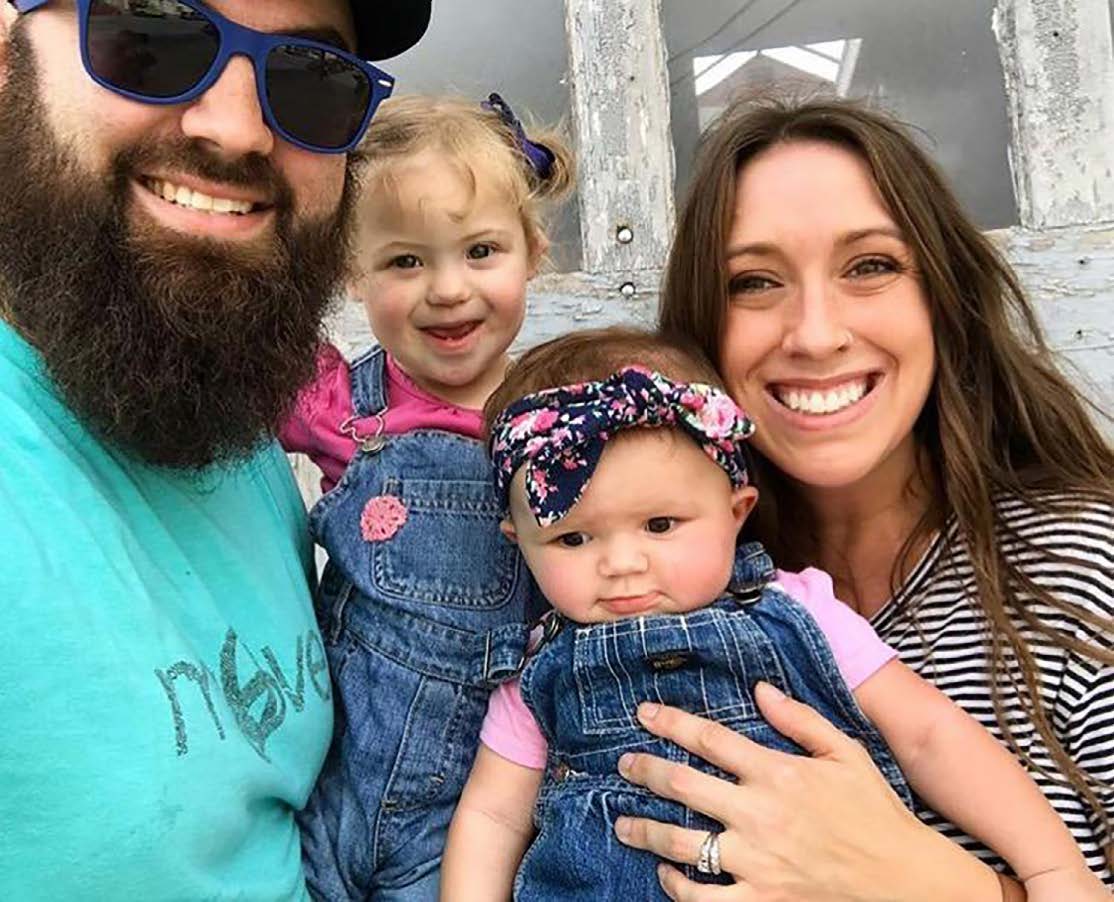
BY EMILY BRITTINGHAM
Amid the growing rate of abortion in fetuses with Down syndrome, Dr. Rick Rader, EP Magazine's Editor in Chief, and I sought to bring some positive attention to families who have chosen to keep or adopt a child with Down syndrome and explore with them the array of emotions, challenges, and blessings that have come with that choice.
As the abortion rates in the United States climb to 80 and 90 percent, it is important to support families who have been given a Down syndrome diagnosis. Lisa and Bekah assert that it is interaction and education that can prevent and lower these abortion rates.
I was given the opportunity to interview two women about their experience raising children with Down syndrome. Lisa is a mother to five children, and her third child, Jordan, was born with Down syndrome. Bekah is the mother of Millie, her adopted daughter with Down syndrome, and Josie, her biological daughter. There are four questions in this article that I asked Lisa and Bekah, but the rest of the interview was led by these two women who shared their honest journey of raising children with Down syndrome.
What do you think the abortion rate for fetuses with Down syndrome is?
I started each interview by asking what each mother thought the current rate of abortion for fetuses with Down syndrome is in the US. Lisa: Lisa stated that in the 70's, the abortion rate was 90%, which was then followed by a decline in the 80's and 90's due to a show on television featuring a child with Down syndrome, Life Goes On. Lisa correctly predicted the current rate to be between 80% and 90%.
Bekah: When I asked Bekah what she believed the abortion rate to be, she stated that she didn't look up the statistics because they were too upsetting to her, and that as the abortion rate climbs, Bekah fears that Millie won't have any friends that look like her. Why did you decide to keep/adopt your daughter?
Why did you decide to keep/adopt your daughter?
Lisa: When I asked Lisa why she chose not to terminate her pregnancy, she informed me that she never went through testing beyond standard prenatal screenings because there is a high rate of false positives and an increased risk of miscarriage with testing (Spencer 2003). Lisa had a typical pregnancy with normal sonograms. It wasn't until after birth that Lisa and her husband were told that Jordan had Down syndrome. When I asked Lisa what went through her mind when she was told that Jordan had the physical markers indicating Down syndrome, she stated that her thoughts felt "uncontrollable" and that she was appalled by them. Lisa describes those thoughts as a "piano playing" because they played over and over in her mind. Lisa said that she looked in the mirror and thought that even though she was now the mother of a child with special needs, she didn't look any different. It was in that moment that the Lord gave her peace of mind and orchestrated a "profound spiritual experience" by reminding her that He would show who He is through Jordan. Lisa said that she then walked to the nursery and knew that she would do anything to protect her baby, that Jordan has a purpose.
Bekah: Bekah and her husband adopted Millie and brought her home as soon as she was released from the hospital. I asked Bekah why she chose to adopt a child with Down syndrome, and she said that she has known since she was a child that she would adopt a child with Down syndrome. Bekah's aunt had a close friend whose son has Down syndrome, and Bekah was able to spend time with him while growing up. Bekah stated that when she was around him he "taught her so much". Bekah's aunt always celebrated him and made Down syndrome "nothing to fear." This is what initially fueled her desire to adopt a child with Down syndrome. Bekah and beyond standard prenatal screenings because there is a high rate of false positives and an increased risk of miscarriage with testing (Spencer 2003). Lisa had a typical pregnancy with normal sonograms. It wasn't until after birth that Lisa and her husband were told that Jordan had Down syndrome. When I asked Lisa what went through her mind when she was told that Jordan had the physical markers indicating Down syndrome, she stated that her thoughts felt "uncontrollable" and that she was appalled by them. Lisa describes those thoughts as a "piano playing" because they played over and over in her mind. Lisa said that she looked in the mirror and thought that even though she was now the mother of a child with special needs, she didn't look any different. It was in that moment that the Lord gave her peace of mind and orchestrated a "profound spiritual experience" by reminding her that He would show who He is through Jordan. Lisa said that she then walked to the nursery and knew that she would do anything to protect her baby, that Jordan has a purpose.
How has raising a child with Down syndrome been different than raising typical children?

FIRST COMES LOVE: Jordan (third from right) poses with her family on sister Peyton's wedding day; Her mother describes her as her own best advocate and ambassador because people have positive experiences when they meet her. Lisa has met with mothers who have been given a fetal Down syndrome diagnosis and brings pictures of Jordan to show how beautiful life is with her in their family.
Lisa: Lisa's biggest concern upon giving birth was the health problems Jordan might face and that she might be letting her children down. Instead, Jordan has thrived without any major health problems. Lisa's kids "adjusted beautifully" to having a sister with Down syndrome. Lisa stated that she felt like it was an advantage for her children to have a sister with Down syndrome because her children were able to meet and interact with other children who have special needs and were not afraid of them. Instead it gave them a "depth of character." Lisa expressed that the biggest difference between Jordan and her other children were the milestones, as Jordan took longer to reach them than her other children. For example, Jordan chose not to walk until she was 2.5 years old. Jordan also received speech therapy, and Lisa expressed that language is Jordan's biggest area of delay. Jordan chooses not to speak when she can get her point across in other ways. However, Jordan has experienced many typical milestones.
She is a junior in high school, works at a local Mexican restaurant and consignment store twice a week, and is looking into a college program at West Georgia for adults with disabilities.
Bekah: Bekah and I talked about the recent shift in her life from raising a child with Down syndrome to raising their newest daughter, Josie (Jojo). Millie was born with a heart defect and low muscle tone. As a result, she needed an NG feeding tube along with open heart surgery. Jojo, on the other hand, was born without any medical problems. Bekah expressed that the biggest difference in raising her two girls has been watching Jojo not need her as much as Millie did. Millie is still largely nonverbal and will communicate through signs and small phrases or simple words. Bekah shared that Jojo, who is nine months old, has passed milestones that Millie was achieving at 17 months old. Bekah described these differences with the phrase, "Babies with Down syndrome keep a little longer," a phrase that a friend shared with her. Bekah also talked about how Millie can become overwhelmed easily and will be reluctant to use her voice. Like Jordan, Millie chooses not to talk. Bekah reminds Millie that "her words matter" and that she "cares about what [Millie] has to say." Bekah also added that "raising any two children is so different. Every child is so different. We have made it our goal to celebrate each child for [who they are]. We want to soak in every part of that child's best and celebrate them fully for who they are. God made them perfectly. We celebrate His creativity."
What would you say to mothers who are considering aborting their child with Down syndrome?
Lisa: Lisa would ask moms to educate themselves and to spend time with a family that has a child with Down syndrome. She would also ask mothers to research the high false positive rate in prenatal screening for Down syndrome and tell the mothers that a Down syndrome diagnosis is not a death sentence. Instead, having a child with Down syndrome is the exact opposite. Lisa describes Jordan as, "her own best advocate and ambassador" because people have "positive experiences" when they meet her. Lisa has also been given the opportunity to meet with mothers who have been given a fetal Down syndrome diagnosis and brings pictures of Jordan to show how beautiful life is with her in their family.
Bekah: Bekah would tell new mothers with a fetal Down syndrome diagnosis, "Congratulations!" She would also ask moms to "slow down, research, and look at the information and advice from their own lens" rather than looking at it from the eyes of people who do not have children with Down syndrome or medical professionals encouraging an abortion. Bekah would encourage mothers to ask themselves, "Is there a beauty I haven't seen yet, and will this change my life?" Bekah's answer is yes, life will change in the best way.
As the abortion rates in the United States climb to 80 and 90 percent, it is important to support families who have been given a Down syndrome diagnosis. Lisa and Bekah assert that it is interaction and education that can prevent and lower these abortion rates.
For further information on the statistics behind fetal Down syndrome abortion rates and false positive prenatal screenings, please see the references listed below.

CHARACTER COUNTS: Jordan's siblings adjusted beautifully to having a sister with Down syndrome. Her mother believes it was an advantage for her children to have a sister with Down syndrome and that it gave them a depth of character.

BEYOND COMPARE: (Opposite page) Bekah and Millie; Bekah said that she has known since she was a child that she would adopt a child with Down syndrome. (Above) Bekah expressed that the biggest difference in raising her two girls has been watching Jojo, who was born without any medical problems, not need her as much as Millie did.
ABOUT THE AUTHOR: Emily Brittingham received her undergraduate degree in Psychology from Berry College and is currently working towards a degree in Occupational Therapy. She lives in Tennessee with her husband, Hunter, and Goldendoodle, Daisy. Emily works at the Orange Grove Center where she enjoys advocating for, and serving her friends there.

References
Bradford, Mark. "New Study: Abortion after Prenatal Diagnosis of Down Syndrome Reduces Down Syndrome Community by Thirty Percent." Charlotte Lozier Institute, 21 Apr. 2015, lozierinstitute.org/new- study-abortion-after-prenatal-diagnosis-of-down-syndrome-reduces-down-syndrome-community-by-thirty-percent/. Spencer, Kevin. "Age Related Detection and False Positive Rates When Screening for Down's Syndrome in the First Trimester Using Fetal Nuchal Translucency and Maternal Serum Free ΒhCG and PAPP-A." Journal of Obstetrics and Gynaecology Research, Wiley/Blackwell (10.1111), 22 Dec. 2003